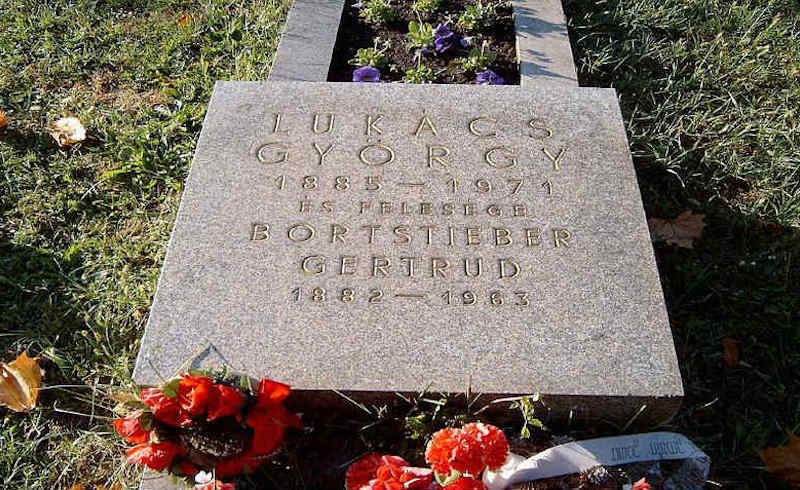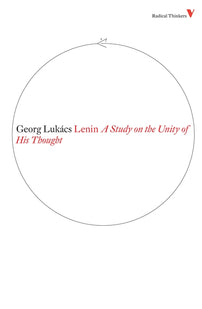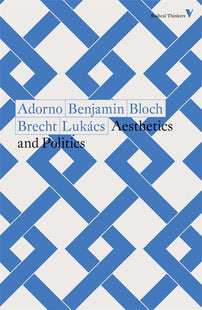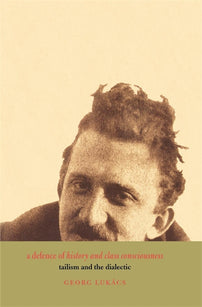G.M. Tamás on Georg Lukács: An Interview
Tamás discusses Lukács' philosophy and the attack on his legacy in Orbán's Hungary.

First published in Kapitál: Angažovaný mesačník.
Can you tell us more about Georg Lukács? In Slovakia and the Czech Republic, he is mostly known as a literary critic and theoretician, but he was also a prominent Marxist philosopher.
First of all, within what they call "Western Marxism," the role of art (including, in the German manner, also literature and music) is paramount, so being an art critic and a Marxist philospher are not two distinct callings. Think of Ernst Bloch, Walter Benjamin, or Theodor W. Adorno or, for that matter, Guy Debord. Lukács’s Theory of the Novel, Heidelberg Aesthetics, and his Notes on Dostoevsky are the prelude to his great revolutionary works of ethics and political philosophy written between 1918 and 1924. From a conservative bourgeois-hater and from one of the very few people to have rejected both capitalism and war on moral and aesthetic grounds (unlike his older friends and masters, Max Weber and Georg Simmel) he, having undergone a quasi-religious conversion, had become the theorist of a communist party that was supposed to be the "collective philosopher" of the proletariat. But art remained for him the "organon" of socialism, replacing transcendence and utopia.
What is your attitude towards Lukács’s philosophy and thinking? Did you know him personally?
No, I have never met him, I didn’t even move to Budapest from Romania during his lifetime, only much later. I have never belonged to his school, either. I came to appreciate him only since I, too, had to undergo a sort of "conversion" to Marxism in the late 1990s. It is not easy to identify with a body of writing, like that of Lukács, anticipating world revolution, finding myself in the post-Soviet world after a lifetime of loathing "real socialism" and instinctively identifying the truly radical Left with ignominious failure and defeat. Nevertheless, I consider his philosophy a particularly strong instrument for understanding not only capitalism (which is the traditional strength of Marxism) but also for imagining its transcendence, its Aufhebung.
We received letters and petitions protesting the imminent dismantling of the Lukács Archives. What is the role and importance of this Archives? And why is this happening?
It is not a great mystery. Hungary has a reactionary, far Right government that differs only in its degree of stupidity, brutality and ignorance from the other reactionary governments of Europe, and the scholarly establishment — the Hungarian Academy of Sciences — believes, mistakenly, that they can have Viktor Orbán off their backs if they make cowardly and unprincipled gestures to flatter the philistinism of the Right. So they have decided to remove Lukács’s manuscripts to some unapproachable warehouse somewhere in the industrial suburbs where it is unclear who will be able to see them, let alone to work with them, and to "refurbish" the old Lukács flat that contains the Archives, using all sorts of idiotic pretexts, the end result being that the study of Lukács’s œuvre and similar research done there becomes impossible, the staff has been either made redundant or pensioned off. To sum it up: the Archives are kaputt, while the Academy, embarrassed by the international protest, pretends that what they are doing is not happening in fact. Lukács — with Karl Polányi, arguably the greatest thinker of the Hungarian and of the Central European Left — cannot be studied and commemorated in a régime which calls even the most harmless liberal a sabre-toothed communist.
I’ve also read that a statue of Lukács is being removed from a park in Budapest, and being replaced by a statue of Saint Stephen? I found out that the idea of its removal came from a young nationalist, Marcell Tokody, a neo-Nazi Jobbik party councillor of Budapest. His proposal received support from the Council dominated by ruling Fidesz party politicians. Is it all part of the same movement against the philosopher? Is he declared an "enemy of the people"? Does it have to do with his Jewish roots?
All of the above. The statue has been already removed; there were a few sporadic, small demonstrations against this. Lukács is attacked as he was a deputy People’s Commissar during the Hungarian communist revolution in 1919 and stands as a symbol of "Judeo-Bolshevism." It is, of course, conveniently forgotten that he was again Minister of Culture in the revolutionary government during the anti-Stalinist uprising of 1956 (allegedly a reference point for this régime which has naturally falsified and obliterated it; not even the name of "Republic" is used any longer by the new Orbán constitution). Lukács is also a common hate figure for the two extreme right tendencies, one in government, one in opposition, these being supported by better-mannered conservatives and even by liberals in their blind anti-Marxist hatred.
The main topic of this issue of magazine Kapital is "Fear," mostly as a device of political propaganda. Is the removal of the Archives and of the statue a symbol of a more complex crisis in Hungarian political life? Is it used to spread fear among people who are not supporting Hungarian nationalistic tendencies?
This is being put too mildly. As you know, in most European countries, including your own and mine, too, anti-immigrant hysteria and rampant racism together with anti-democratic inclinations are strong, they even compose a majority or a plurality — in the absence of a strong Marxist Left and with the vanishing of the last vestiges of "bourgeois democratism." The majority fears "the savage hordes from the East and from the South" and those whom Slavoj Žižek calls in his new anti-migration and anti-Willkommenskultur writings "the beautiful souls" (following Hegel’s usage in the Phenomenology). These "beautiful souls" of which I am a card-carrying member, so to speak, are derided in the West and persecuted and threatened in the East. There is reason for fear and this is what I see around me with more and more intellectuals falling carefully silent.
Is this related to the government’s campaign to shut down a major university founded by the Hungarian-American financier and philanthropist George Soros?
Indirectly, yes. The American "alt-right," extremely popular here, calls any anti-racist and egalitarian thought (from mainstream liberals to revolutionary socialists) "cultural Marxism" (parroting Goebbels’s term "Kulturbolschewismus" that has meant exactly the same in the good old days of the Third Reich) — you know, the "beautiful souls" — and hates feminism, called "gender fascism" by the Orbán press, taught at the CEU (which has a Department of Gender Studies, considered a scandal). I am teaching a course on class and another on Critical Theory at the CEU as a visiting professor at the Department of Sociology.
Everything and everybody suspected of being opposed to absolute power, from John Locke to Antonio Gramsci, is highly suspect and accused of the most heinous imaginary crimes.
What do you propose can be done in this situation by public intellectuals? Are there any initiatives against these tendencies?
There are the methods which we are just using: speaking out. Long years after similar initiatives like yours in the Czech Republic, Serbia, Romania (where they are called, including peaceful social democrats, "the red pestilence," ciuma roşie), Russia, Turkey and so on, we have here at least a modest, eclectic, leftish internet journal, Mérce ("Measure," formerly "The Double Standard") which is at the same time a round-the-clock news site, where I have a weekly column. They do publish Marxist articles. There are similar initiatives, but the Hungarian Left is small and notoriously wary of organising and of acting politically. So what remains for the moment is talk. Clarifying, criticising, protesting, annoying, provoking, explaining — spreading the word.
[book-strip index="1" style="display"]




